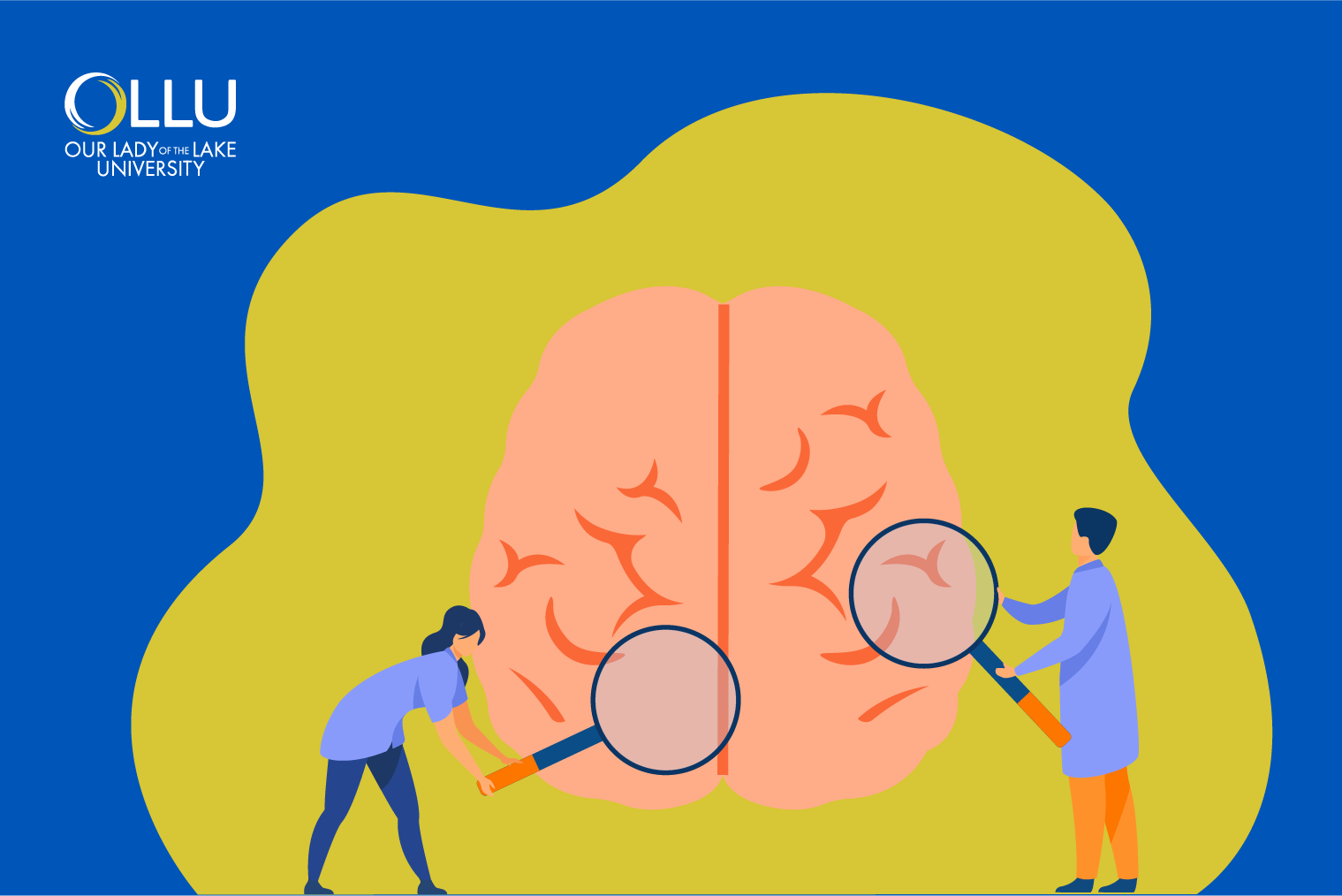A Closer Look at Clinical vs. Counseling Psychology
Nov 27, 2023

The field of psychology can be challenging to navigate, especially when it comes to understanding the difference between clinical vs. counseling psychology. Whether you’re meant for the intense world of clinical psychology, solving mental health puzzles, or the empathetic realm of counseling psychology, guiding individuals through their life journey — this article is for you!
Take a journey with us as we explore the fascinating differences between these two fields of psychology and help you identify which one is the right fit for you.
What Is Clinical Psychology?
Clinical psychology is a branch of psychology that deals with the assessment, diagnosis, and treatment of mental disorders and emotional disturbances. Clinical psychologists often work in hospitals, mental health clinics, private practices, or academic settings.
Clinical psychologists use a combination of psychological theories, research, and therapeutic techniques to help individuals manage and overcome mental health challenges. They may work with a diverse range of clients, including those with serious mental illnesses, such as schizophrenia or bipolar disorder, as well as individuals facing less severe psychological issues.
What Is Counseling Psychology?
Counseling psychology is another branch of psychology that assists individuals in managing everyday life challenges and stressors. Professionals in this field cooperate with clients to improve their mental well-being, foster personal development, and address issues such as relationship difficulties, work-related stress, or life transitions.
They utilize various therapeutic approaches, including talk therapy, cognitive-behavioral therapy (CBT), and humanistic approaches, to create a supportive and collaborative therapeutic relationship with clients, aiding in personal growth and positive change.
What Is The Difference Between Clinical And Counseling Psychology?

Clinical psychology and counseling psychology are closely related, but some critical differences exist regarding education, focus, work setting, salary, and job titles. However, before diving deep into these differences, it’s essential to understand that the distinctions between clinical and counseling psychology are not always absolute, and there is some overlap between the two fields.
Some practitioners may identify with both clinical and counseling psychology, and their responsibilities can vary depending on their training, interests, and job requirements.
Education
In the journey to becoming a psychologist, clinical and counseling paths involve diving deep into academia. Clinical psychologists usually pursue a doctoral degree, either a PhD or PsyD. They can specialize in various areas, such as child psychology, neuropsychology, or health psychology, allowing them to address multiple psychological issues across the lifespan. This demanding journey involves a blend of coursework, hands-on clinical experience, and dedicated research.
On the other hand, counseling psychologists can pursue a doctoral degree or a master's degree that focuses on practical skills and counseling techniques.
Focus
Clinical psychologists are often referred to as mental health detectives. Their primary mission is to assess, diagnose, and treat individuals with complex mental illnesses and psychological disorders. Clinical psychologists mainly work with people who are experiencing significant challenges related to their mental health.
Conversely, counseling psychologists act as guides to help individuals navigate everyday stressors and challenges. Their primary focus is on relationships, work-related stress, and life transitions.
Work setting
Clinical psychologists work in various settings, such as hospitals, mental health clinics, private practices, or academic institutions, and provide tailored treatment to individuals, couples, families, or groups.
On the other hand, counseling psychologists mainly work in universities, schools, community centers, private practices, or corporate environments, providing counseling services to students and individuals dealing with personal and academic challenges.
Salary
Clinical psychologists in the United States earn an estimated total pay of $119,168 annually, with an average annual salary of $100,235 . This figure includes an estimated additional payment of $18,933, encompassing cash bonuses, commissions, tips, and profit sharing. For those entering the field, the starting salary is around $91,000 a year, and with accumulated experience, earnings can rise to as high as $157,000.
Not far behind, counseling psychologists earn an average salary of $100,173 . After including an additional pay component of $16,247 annually, the estimated salary of counseling psychologists can reach $116,419 per year.
For those entering the field, the starting salary is around $93,000, and as professionals gain more experience, the potential income can climb to as high as $147,000 yearly.
Job titles
Every title is a testament to their diverse roles in enhancing mental health and life satisfaction. Here are some common roles performed by clinical psychologists:
- Learning specialists - They assess and address individuals' learning difficulties, such as learning disabilities or developmental disorders. They develop interventions and strategies to enhance learning outcomes.
- Forensic psychologists - These professionals apply psychological principles to legal issues. They work in criminal investigations, court settings, or correctional facilities, conducting assessments, providing expert testimony, and assisting in understanding the psychological aspects of legal cases.
- Sports psychologists - They work with athletes to enhance their mental and emotional well-being, improve performance, and address issues related to motivation, confidence, and stress management within a sports context.
- Child psychologists - They specialize in understanding and addressing the psychological needs of children and adolescents, assessing and treating various issues, including behavioral problems, emotional disorders, and developmental challenges.
Counseling psychologists, on the other hand, work as:
- School counselors - They provide students with academic, social, and emotional support. They assist in educational planning, address behavioral concerns, and help students navigate personal challenges, fostering a positive school environment.
- Clinical social workers - These professionals offer psychotherapy and support services to individuals, families, and groups. They address various mental health issues, connect clients with resources, and advocate for their well-being.
- Organizational counselors - They work within corporate settings, helping employees navigate workplace challenges, improve interpersonal relationships, and enhance overall job satisfaction. They may also contribute to organizational development and employee well-being programs.
- Health psychologists - These professionals study the psychological factors influencing physical health. They may work in healthcare settings, promoting behavior change, helping patients cope with chronic illness, and contributing to holistic approaches to health and wellness.
Clinical Vs. Counseling Psychology: Which One Should I Choose?
Choosing between clinical and counseling psychology is a journey that depends on your passions, career aspirations, the kind of people you want to work with, and how much time and effort you’re ready to invest in your education. Let’s break it down to help you make a decision that feels right for you:
What gets you excited: If you’re intrigued by delving into the world of severe mental health disorders, where assessment, diagnosis, and treatment are pivotal, clinical psychology might be your calling. Conversely, counseling psychology might resonate better with your goals if you’re more into helping people deal with everyday hurdles like relationships, stress, and career transitions.
Where you do your thing: Picture your ideal work setting. You will practice in hospitals, mental health clinics, or private practices as a clinical psychologist. As a counseling psychologist, you will bend towards counseling centers, career services, or community mental health organizations.
Big dreams and long-term goals: If diving into research, contributing to understanding mental health, and teaching in an academic setting spark your interest, clinical psychology is your path.
On the other hand, if you’re all about providing counseling services, guidance, and support to folks facing life’s challenges, counseling psychology might be the arena for you.
Explore both worlds: Attend conferences, workshops, or clinical and counseling psychology networking events. Chat with professionals to soak in their experiences and get a feel for the vibe of each field.
Remember, this decision is all about you. Consider dipping your toes into both realms through internships or volunteer work to see which environment feels like your professional home. And seek guidance from mentors or pros in both fields—they’ve got insights that can be pure gold. Good luck on your journey!
The Bottom Line
As we conclude our exploration into the dynamic realms of clinical and counseling psychology, it’s evident that both fields offer fulfilling paths to those passionate about improving mental health. Remember, the distinctions between clinical and counseling psychology are not rigid, and professionals in these fields may find themselves wearing multiple hats based on their training and interests.
As you embark on this exciting journey, we invite you to explore the counseling psychology program at Our Lady of the Lake University. Our Doctor of Psychology (PsyD) degree with a concentration in Counseling Psychology is designed to equip you with the skills and knowledge needed to make a positive impact in the lives of others.
Frequently Asked Questions (FAQs)
What is counseling psychology?
Counseling psychology is a branch of psychology that addresses life challenges and mental health issues, aiming to enhance well-being through therapeutic support.
What's the difference between clinical psychology and counseling?
Clinical psychology deals with severe mental disorders, while counseling psychology focuses on common life issues, promoting holistic well-being.
Do the educational requirements differ for clinical and counseling psychologists?
Clinical and counseling psychologists usually pursue doctoral degrees (PhD or PsyD). But, counseling psychologists can also choose master's degrees, with an emphasis on practical skills and counseling techniques.
Which psychology course is best, clinical or counseling?
The choice between clinical and counseling psychology depends on individual interests and career goals. Clinical is more pathology-focused, while counseling is holistic and wellness-oriented.